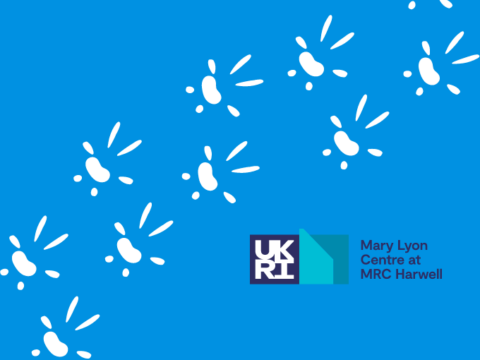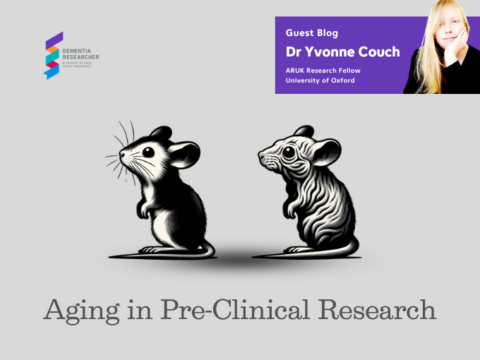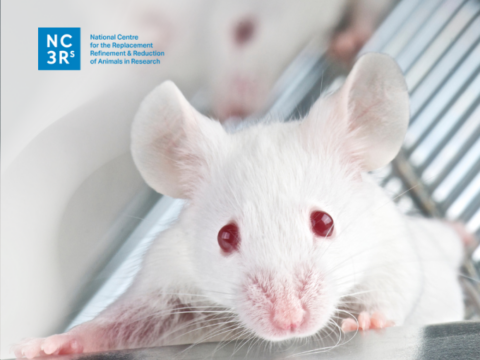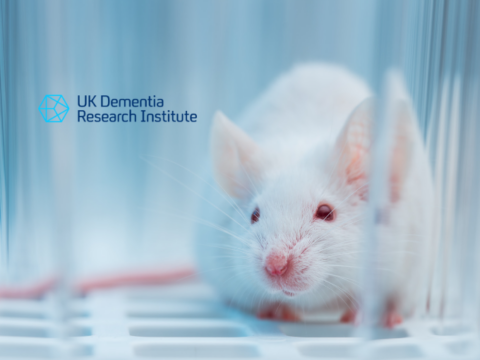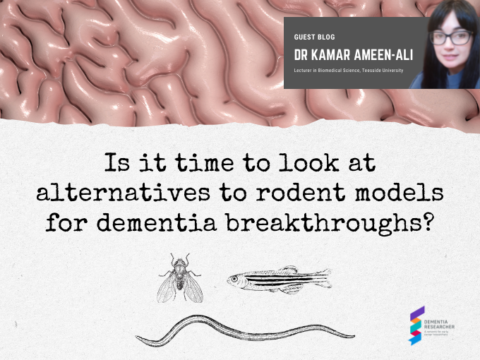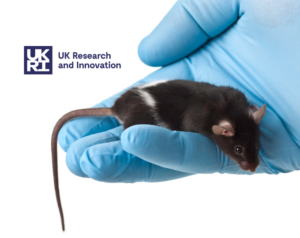 Age-related illnesses such as dementia are some of the most challenging disease areas we face. New UK Research and Innovation (UKRI) investment, confirmed today, will boost national commitments to understanding the causes of these diseases better and proposing new treatments, through research into model organisms such as mice.
Age-related illnesses such as dementia are some of the most challenging disease areas we face. New UK Research and Innovation (UKRI) investment, confirmed today, will boost national commitments to understanding the causes of these diseases better and proposing new treatments, through research into model organisms such as mice.
The investment is part of the Securing Better Health, Ageing and Wellbeing strategic theme, one of five at the heart of UKRI’s current five-year strategy.
The Medical Research Council (MRC) National Mouse Genetics Network
MRC (part of UKRI) has committed in excess of £20 million over five years to investigate key disease areas using the mouse as the main model organism. It harnesses the world-leading expertise across many disciplines and promotes better findings and outcomes through closer joint working.
Led by scientists at Newcastle University and the University of Cambridge the new Ageing Cluster will improve existing models of ageing, drawing from the knowledge gathered in various model systems such as the fruit fly and worm. In turn, this will generate new mouse models, complementing the existing global and national programmes to enhance the UK’s position as a leading centre of excellence.
The new tools generated as a result of this funding will be available to the scientific community to improve our understanding of the ageing process and to provide a resource for preclinical testing and intervention.
Securing better health, ageing and wellbeing
Through this strategic theme, UKRI aims to improve population health, tackle the health inequalities affecting people and communities, and advance interventions that keep us healthier for longer.
Professor Dame Ottoline Leyser, UKRI CEO, said:
UKRI’s support for this work builds on our core research and innovation investments, working with partners across disciplines and sectors to progress approaches to promote healthy ageing. The Ageing Cluster is an ambitious, innovative UK-wide collaboration which will uncover new mechanisms in human ageing through highly focused mouse studies, leading to new treatments that aid healthy ageing and wellbeing.
‘The programme is part of UKRI’s Securing Better Health, Ageing and Wellbeing strategic theme, leveraging investment from across UKRI to target priority challenges.
Professor Patrick Chinnery, Executive Chair of MRC, said:
The UKRI Mouse Genetics Network Ageing Cluster will transform our approach to understanding aging and how to promote a healthy lifespan. This is only possible through a cross-disciplinary collaboration across the UK.
Professor David Burn, Pro Vice Chancellor, Faculty of Medical Sciences, Newcastle University, said:
I am delighted that Newcastle University is an important part of the UKRI Mouse Genetics Network Ageing Cluster. This cluster offers researchers the opportunity to develop new animal models so that we may better understand ageing. This, in turn, will allow us to translate this research into extending healthy life-span in humans in the future.
Professor Anne Ferguson-Smith CBE FRS FMedSci, Pro-Vice-Chancellor (Research and International Partnerships) and Arthur Balfour Professor of Genetics, University of Cambridge, said:
Collaboration is central to our research activities in Cambridge. The new Ageing Cluster is a fine example of multiple institutions working together to add value and bring exciting new insight and expertise to advance the critically important field of healthy ageing. I am proud to be part of this important initiative which can deliver new routes to improved health span.
Professor Owen Sansom, Director of the Cancer Research UK Scotland Institute and the MRC National Mouse Genetics Network, said:
We are delighted to add the Ageing Cluster to the MRC National Mouse Genetics Network. The selected group is led by leaders in the field and we are expecting significant contributions over the next four years. With many age-related diseases being investigated within the Network, the new cluster is perfectly positioned to synergise with the other programmes and maximise the collaborative work between clusters which has been one of the many strengths of the Network since its inception.
Professor Walid Khaled, Wellcome-MRC Cambridge Stem Cell Institute, University of Cambridge, Co-Lead of the MRC National Mouse Genetics Network Ageing Cluster, said:
I am very pleased to be co-leading this project from Cambridge and I am looking forward to working with the rest of the team from around the UK. “Prevention is better than cure” and our project will generate a reference map that we will use in the future to assess interventions that could prevent ageing related health decline.
Dr Laura Greaves, Senior Lecturer Wellcome Centre for Mitochondrial Research, Biosciences Institute, Newcastle University, said:
I am delighted to be co-leading the Ageing Cluster from Newcastle University alongside our team of expert scientists. This ambitious project will unveil new mechanisms driving ageing and age-related diseases and expedite our understanding of how we can promote healthy ageing. Joining the MRC National Mouse Genetics Network presents an incredible opportunity to synergise our efforts with fellow researchers, to maximise the impact of our work, and move towards a future with a healthier, more resilient ageing population.
Further information
Five strategic themes
The 2022 to 2027 UKRI strategy document sets out five themes that, by working across UKRI and leveraging new and existing investment and activity, aim to harness the full power of the UK’s research and innovation system to tackle major national and global challenges. £75 million has been allocated to each theme over five years:
- Building a green future
- Building a secure and resilient world
- Creating opportunities, improving outcomes
- Securing better health, ageing and wellbeing
- Tackling infections
MRC considers the use of animals to be necessary in many areas of biomedical research in order to better understand the living body and what goes wrong in disease. Animal research is essential in the development of safe and effective ways of preventing or treating diseases.
All our animal research is conducted in accordance with UK law and ethically approved by an independent review board. MRC researchers are expected to follow the highest standards of animal welfare. For more information visit Research involving animals.

 Print This Post
Print This Post
